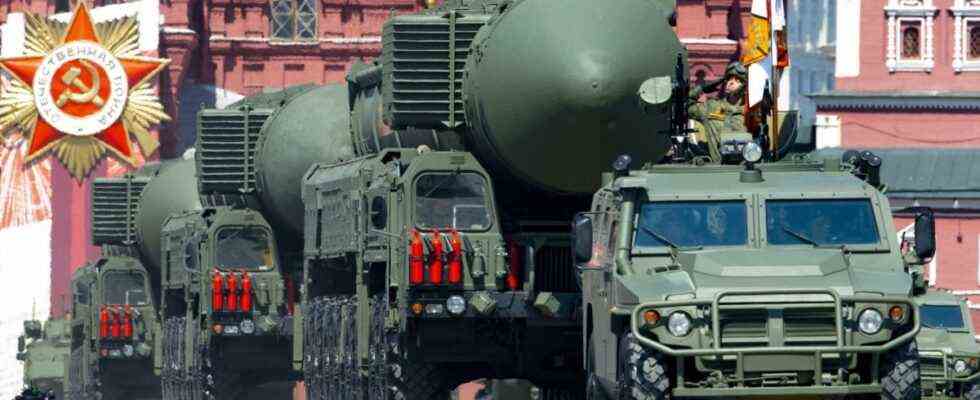If the Cold War had ever turned into a heated military conflict, the front would have run right through Germany. The danger that nuclear weapons would have been used was so palpable that it was incorporated into books for young people. The end of the bloc confrontation and a series of arms control treaties between the superpowers pushed the risk so far back that it disappeared from the public eye. Federal Foreign Minister Annalena Baerbock wants to raise awareness of the issue again and start a disarmament policy initiative.
How necessary this is is shown by the breaking away of central pillars of the security architecture in Europe, as well as the tensions with Russia. The INF treaty banning medium-range nuclear weapons has failed because Moscow has secretly developed and tested such systems and has now also introduced them to the troops. US President Donald Trump frivolously terminated the Open Skies Agreement, which was supposed to guarantee military transparency. All that remains is the New Start Treaty, which limits the strategic nuclear arsenals of Russia and the United States.
China is arming itself, North Korea is getting bombs, and Iran will soon be a nuclear power
Developments outside Europe are also worrying: China is drastically expanding its nuclear arsenal. North Korea has bought dozens of bombs, and Iran is rapidly approaching the threshold of nuclear power since Trump pulled out of the 2015 nuclear deal. All of this undermines the Nuclear Non-Proliferation Treaty worryingly.
With her trip to the ministerial meeting of the Stockholm Initiative for Nuclear Disarmament, Baerbock is building on her predecessor Heiko Maas. But even he has already learned how much resistance there is and that the heated international situation makes rapid progress unlikely. Anyone who wants to achieve success in arms control needs patience. The matter is highly complex, the positions are far apart. Nevertheless, even during the Cold War, despite all tensions, it was possible to come to political solutions through technical talks that promised more security to all sides.
Germany must be ready to do more to defend itself
After all, the US and Russia have started a dialogue on strategic stability again. US President Joe Biden wants to reduce the role of the nuclear arsenal in United States security doctrine. The new federal government can and should encourage him in this. However, it must then also be ready to increase its contribution to conventional alliance defense in Europe. And recognize that the nuclear weapons still stationed in Germany can only be withdrawn in accordance with the allies in NATO and in the course of an agreement with the Kremlin. This would have to guarantee that Russia will reduce its tactical nuclear weapons.
Germany’s participation as an observer in the Conference of the Parties to the Nuclear Weapons Prohibition Treaty, as provided for in the coalition agreement, is in this context primarily a symbolic policy for its own clientele. It is more important, in line with the Stockholm Initiative, to do everything possible to strengthen the Nuclear Non-Proliferation Treaty. If that starts to slide, a number of states in the crisis regions of the Middle East or in Asia could be flirting with the bomb. A new comprehensive arms control deal with Russia for Europe would be the diplomatic jackpot. A term in office in the Foreign Office should not be enough.

